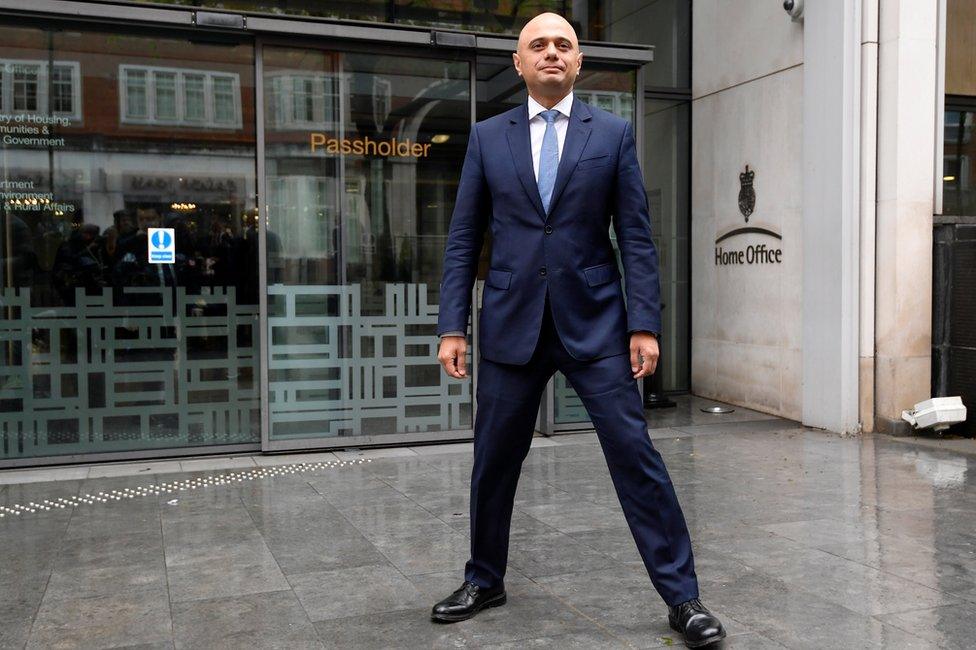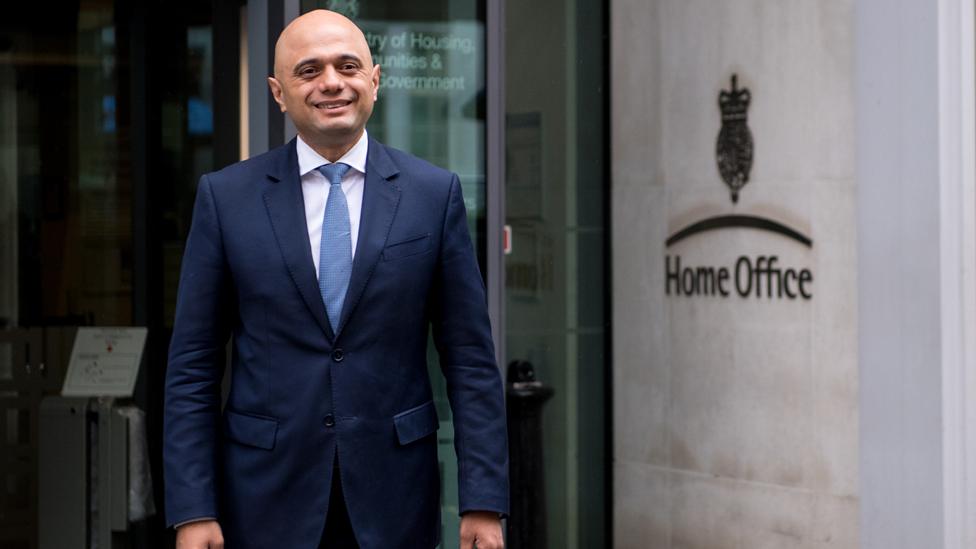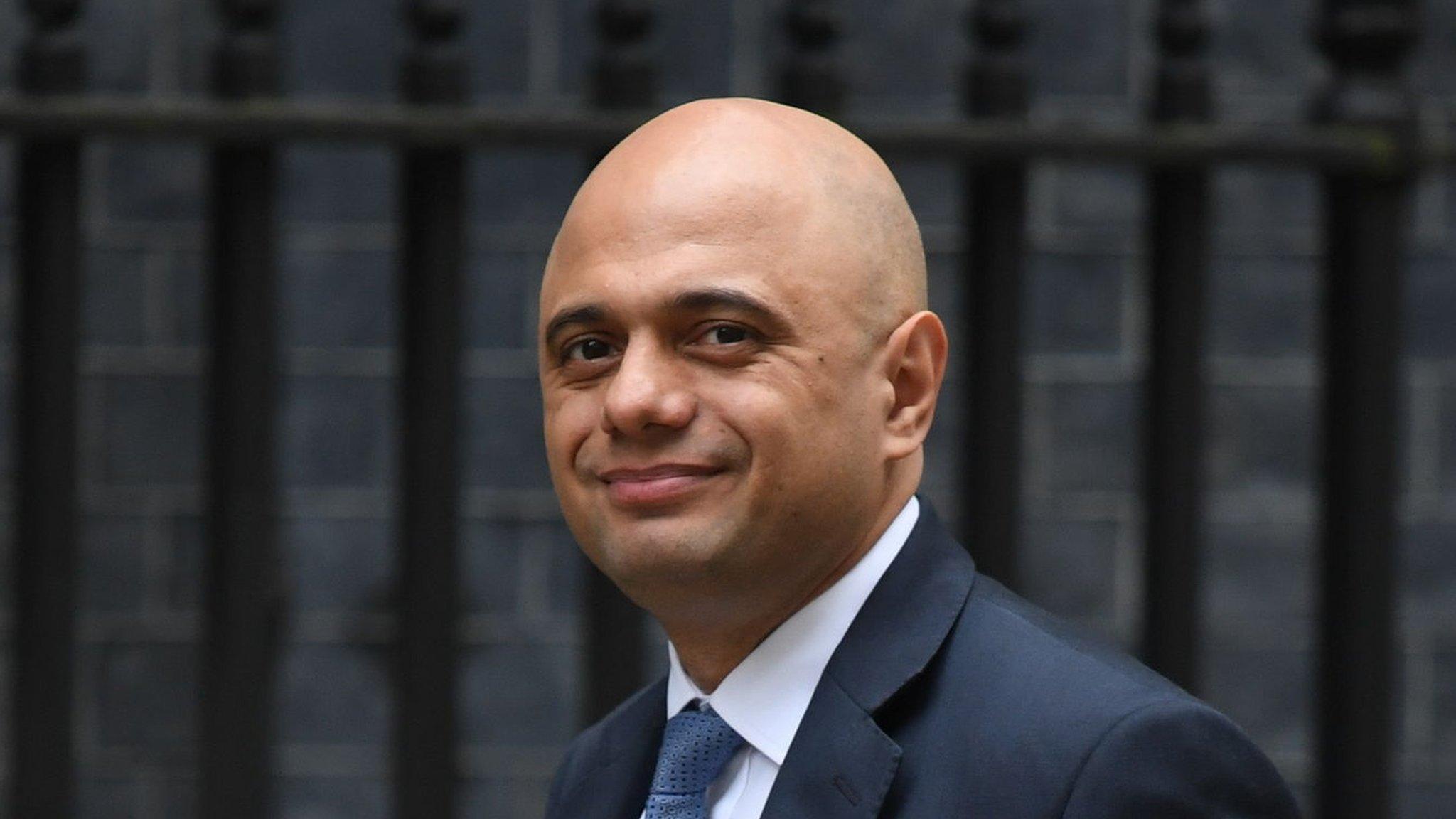Sajid Javid faces massive task at Home Office
- Published

There are many complex tasks to be across in the Home Office brief
The new Home Secretary Sajid Javid faces a massive task. And none of it - from terrorism through to the Windrush crisis - is easy to fix.
The Home Office sits at the heart of some of the most complex and challenging decisions in government - and, if his predecessors' experiences are any guide, Mr Javid should probably give up now on the hope of having much of a life beyond his red ministerial boxes.
I'll come back to immigration in a moment, but first on the list for any incoming home secretary is appreciating the scale of the security threat.
Every day, he will see a dozen dossiers from the police and intelligence agencies asking for permission to intercept the communications of people who are a threat to the UK. There are regular top secret security briefings on the latest possible terror plot. This is his first responsibility: keeping the UK safe.
Mr Javid inherits very thorny issues over the future of the security and intelligence agencies. MI5 is under pressure to share more of what it knows with local agencies like social services, in the hope they will uncover potential extremists more quickly.
Local police chiefs and counter-terrorism coordinators also regard neighbourhood teams as the frontline of counter-terrorism intelligence gathering. They want more cash to keep those officers on the beat.
This, in turn, feeds into the questions of police funding - with figures showing rising knife and violent crime.
Will Rudd's priorities fall away?
One of Ms Rudd's last acts was to launch the Home Office's latest strategy to end serious violence. It's not clear how it really differs from what has gone before. Will Mr Javid rip it up and start again?
She was also particularly focused on overhauling protection for victims of domestic violence - and the Home Office is consulting on new laws, external.
Will this legislation stay on track, or fall by the wayside if Mr Javid comes under pressure to put all his energies into reforming the immigration system?
Then there are unexpected events.
Nobody foresaw the Salisbury poisoning of Sergei and Yulia Skripal. As and when the domestic intelligence agencies uncover new details of how it happened, Mr Javid will need to be clear about how he wants to respond.
Similarly, while there is a tried-and-tested plan to respond to terrorism attacks, if the worst were to happen again, he will be expected to take a lead, even though he has absolutely no experience in this area.
One of the biggest challenges in the in-tray is making sure that the UK secures co-operation with the EU member states on crime and security before Brexit becomes reality.
Amber Rudd's team have been working on a new security treaty. This isn't headline-writing stuff - but it is crucial to every nation's mutual security.
Amid the politics of Brexit, Mr Javid, who said he voted to remain but is also considered a Eurosceptic, will have to play a careful hand to keep continental partners on side.
It's all about immigration
Ultimately, the biggest job he faces is sorting out immigration. From removal targets to a plan for EU citizens; from staff for a stretched NHS through to students and the net migration target; the task is enormous.
Almost exactly 12 years ago, another Home Secretary - Labour's Charles Clarke - lost his job over his department's failure to properly manage the removal of foreign national offenders.
In between his sacking and the resignation of Amber Rudd on Sunday, there has been a string of reorganisations of the immigration system.
But the same problems remain: damning reports underlining that the system is creaking, underfunded and struggling with backlogs, poor decision-making and, now, the accusation that the Windrush generation became an easy target to improve the statistics.
In the week that Parliament was awash with anger over the treatment of people like Paulette Wilson, who came to the UK from Jamaica as a child in the 1960s, an Iraqi man called Rbar Mala was jailed for helping hundreds of IS fighters. The Home Office had told him he had no right to be in the UK.
For many critics, why Mrs Wilson was labelled an illegal immigrant, but a man like Mala was not deported goes right to the questions of trust and competence.
I have lost count of the number of people who have said to me down the years that the Home Office is "too big to manage" - and therefore incapable of caring.
That is unfair to the many civil servants who are trying to make a positive difference but find their efforts constantly battered by political winds and the sheer bureaucracy of the place.
Perhaps Sajid Javid, the son of Pakistani immigrants, who became a successful investment banker, will finally bring not just new management skills but a human touch to the Home Office.
- Published30 April 2018

- Published29 April 2018

- Published30 April 2018